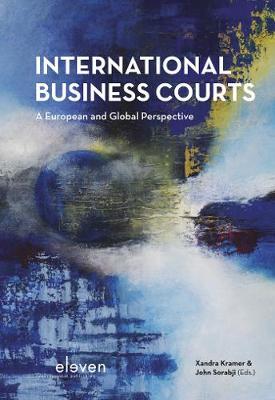written by Veronica Ruiz Abou-Nigm
ASADIP (American Association of Private International Law)
13th Annual Conference – Punta del Este, URUGUAY, 21-22 November 2019
TRANSNATIONAL EFFECTIVENESS OF LAW: Recognition and enforcement of foreign judgments, arbitral awards and other acts
On 21 and 22 November 2019, the 13thASADIP Annual Conference took place in Punta del Este (Uruguay) with the participation of more than 30 international speakers from several jurisdictions and over 130 attendees, mostly from the Latin American region, but also from North America and Europe. The theme of the conference was the Transnational Effectiveness of Law:Recognition and Enforcement of Foreign Judgments, Arbitral Awards and other Acts;
The then President of ASADIP, Eduardo Vescovi (Uruguay), delivered the welcome speech followed by the inaugural conference on the “Pro-effectiveness principle and transnational access to justice” by Didier Opertti Badán (Uruguay). Following from there, the conference included eight panels (each including several short presentations), a round-table debate (with several participant speakers), and four keynotes (special conferences). Presentations in these various formats were followed by lively discussions with the audience.
In its thirteenth iteration, the ASADIP annual conference brought together an enthusiastic group of established private international law scholars and practitioners. There were also specific activities catered for the younger generation of scholars, practitioners and research students: these were the ASADIP-CLAEH (Young ASADIP) Conference that took place at the University CLAEH of Punta del Este, on 20thNovember in the afternoon, including panel presentations and a debate; and, as it has been happening for many years at the ASADIP annual conference, a poster contest that took place on the second day of the conference. Several young researchers from Peru, Argentina, Brazil, and France presented their research in front of the evaluation committee, with three of them being awarded prices. For the full list of all the activities, including the specific topics of the panels and keynote addresses, and the names and profiles of all the international speakers and research students presenting, see the full report (in Spanish) here.
Furthermore, on 23 November 2019 the annual ASADIP General Assembly was held, during which the ASADIP Council for the period 2019-2022 was elected. For further information on the new Council members see further here.
The detail:
First Panel: “Circulation of public documents globally”. Speakers: Paula María All (Argentina), Carmen González (Uruguay), Renata Alvares Gaspar (Brazil) and José Manuel Canelas (Bolivia), mooderated by Eduardo Vescovi (Uruguay).
Second Panel: “International cooperation in transnational family situations”. Speakers: Nieve Rubaja (Argentina), Luciana B. Scotti (Argentina) and Daniel Trecca (Uruguay), moderated by Elizabeth Villalta Vizcarra (El Salvador).
Third Panel: “Transnational Efficacy of Foreign Judgments – Flexibilization of Requirements” Speakers: Claudia Madrid Martínez (Colombia), Taydit Peña Lorenzo (Cuba), Carolina D. Iud (Argentina) and Eduardo Tellechea (Uruguay), moderated Adriana Fernández (Uruguay).
These morning panels were followed by the first Keynote Speech: “New Hague Convention on the Recognition and Enforcement of Foreign Judgments in Civil and Commercial Matters ”by João Ribeiro-Bidaoui (HCCH).
Fourth Panel: “The Hague Convention on Recognition and Enforcement of Foreign Judgments and its impact on Latin American countries”. Speakers: Marcos Dotta (Uruguay), Verónica Ruiz Abou-Nigm (UK), Fabricio Bertini Pasquot Polido (Brazil) and Juan Carlos Guerrero (Mexico), moderated by Inez Lopes (Brazil).
Fifth Panel: The last Panel of the first day on “Transnational Effectiveness of Provisional Measures” was moderated by Sebastián Paredes (Argentina), presenting on the subject Cecilia Fresnedo de Aguirre (Uruguay), Eugenio Hernández-Bretón (Venezuela) andThiago Paluma (Brasil).
The second day of the Conference began with the Sixth Panel moderated by Mercedes Albornoz (Mexico). Speakers: Gonzalo Lorenzo Idiarte (Uruguay), María Blanca Noodt Taquela (Argentina) and Roberto Ruiz Díaz Labrano (Paraguay) reflected around the question of “Is it desirable to abolish the exequatur?
After that, the second keynote speech on the “New OAS Guide on the Law Applicable to International Commercial Contracts in the Americas” was delivered by the Rapporteur of the Guide, José A. Moreno Rodríguez (Paraguay) and Jeannette Tramhel (OAS).
Panel Seven: “Transnational Efficacy of Foreign Arbitral Awards -Impact of the new international arbitration laws in the Río de la Plata”. Speakers: Paul F. Arrighi (Uruguay), María Laura Capalbo (Uruguay), Soledad Díaz (Uruguay), Alejandro Menicocci (Argentina), Guillermo Argerich (Argentina) and Juan Jorge (Argentina), moderated by Juan José Cerdeira (Argentina).
Debate: “Execution of foreign arbitral awards – something to change?”. Participants: Francisco A. Amallo (Argentina), João Bosco Lee (Brazil), Diana Giraldo Montoya (Colombia), Francisco Grob (ICSID) and Jaime Vintimilla (Ecuador), being the moderator María Laura Capalbo (Uruguay).
The third keynote speech on the “New Singapore Convention and the execution of international agreements resulting from cross-border mediation ” was delivered by Luis Ernesto Rodríguez Carrera (Venezuela) and María Verónica Duarte (Uruguay).
Panel Eight: “The transnational effectiveness of arbitral awards versus that of foreign judgments”. Speakers: María Susana Najurieta (Argentina), Julio César Rivera (Argentina), Carlos Odriozola (Mexico) and María Macarena Fariña (Uruguay), moderated by Nicolás Etcheverry (Uruguay).
The conference closed with a keynote speech from Diego P. Fernández Arroyo (France) on the “Role of Private International Law in the Global Era”.

